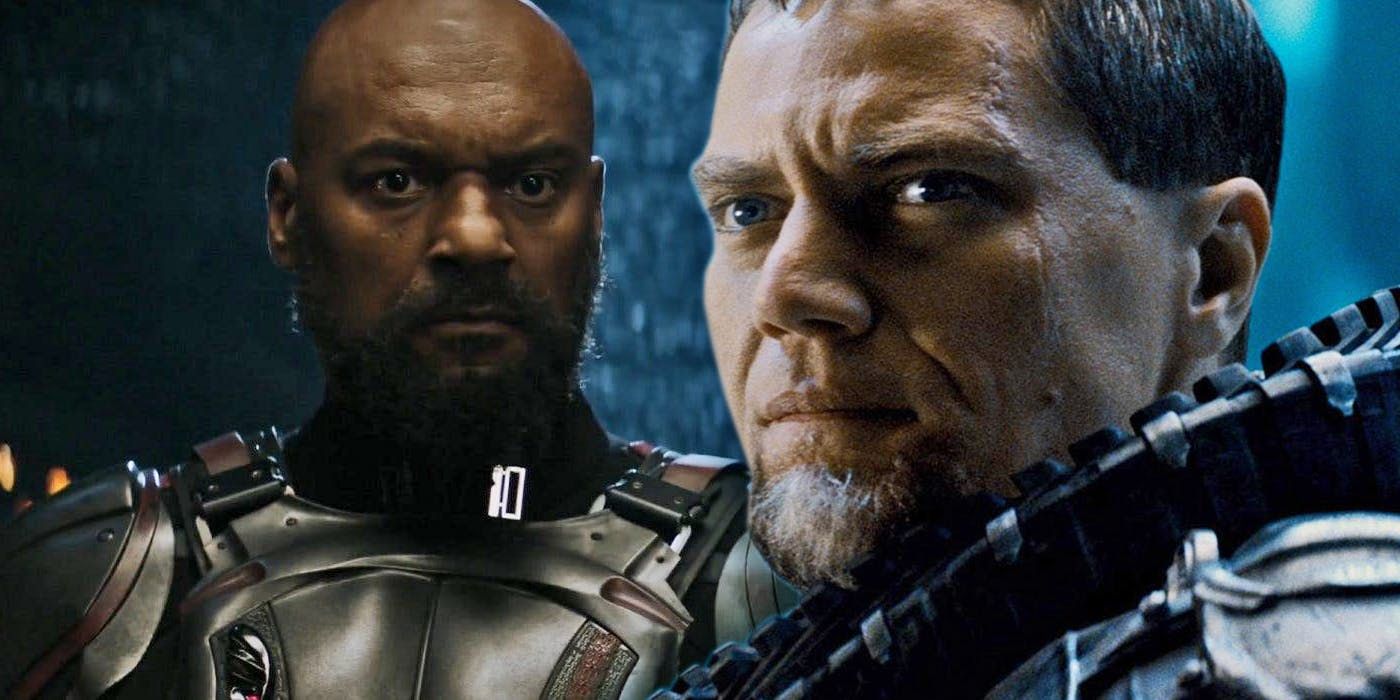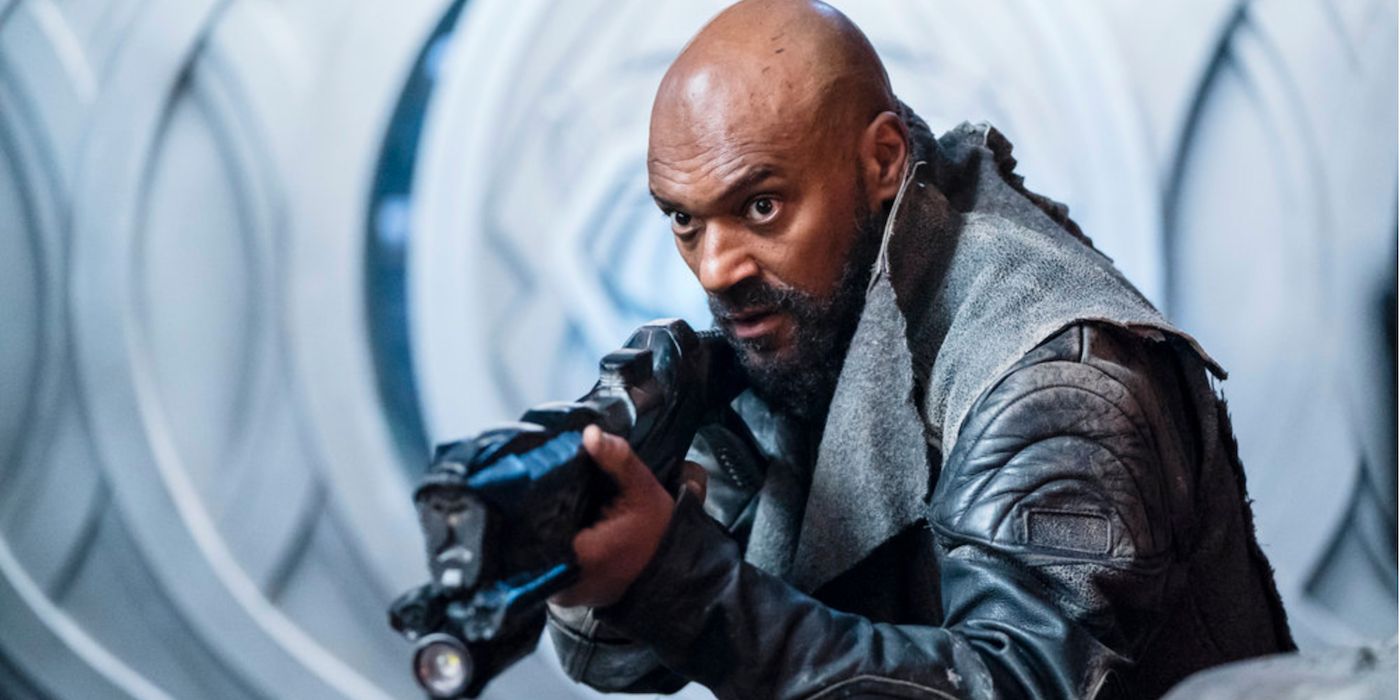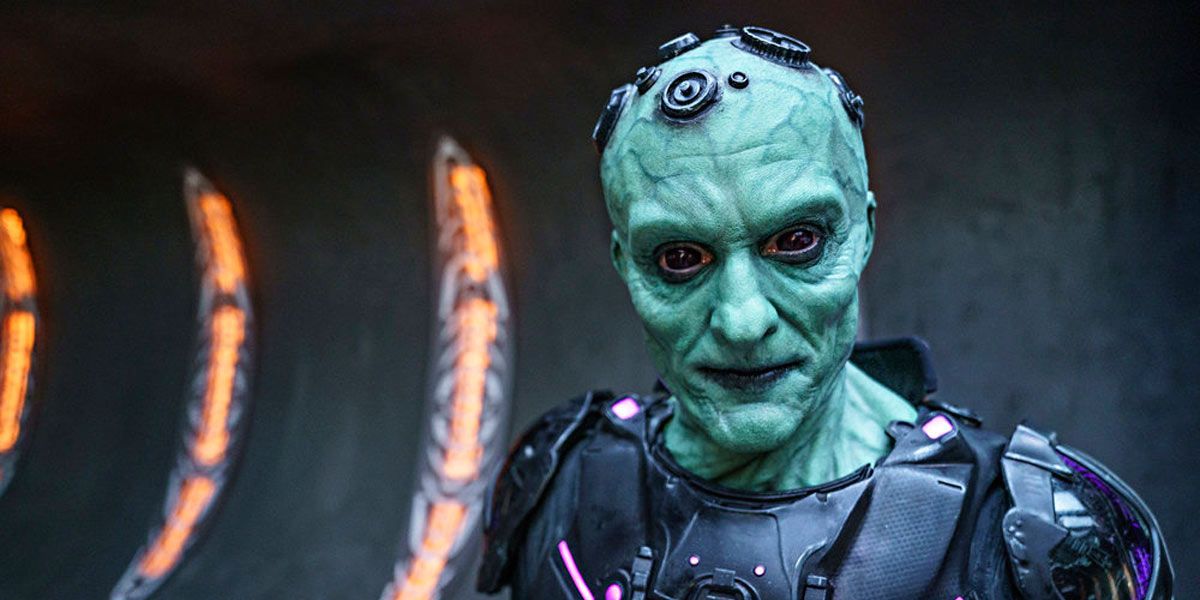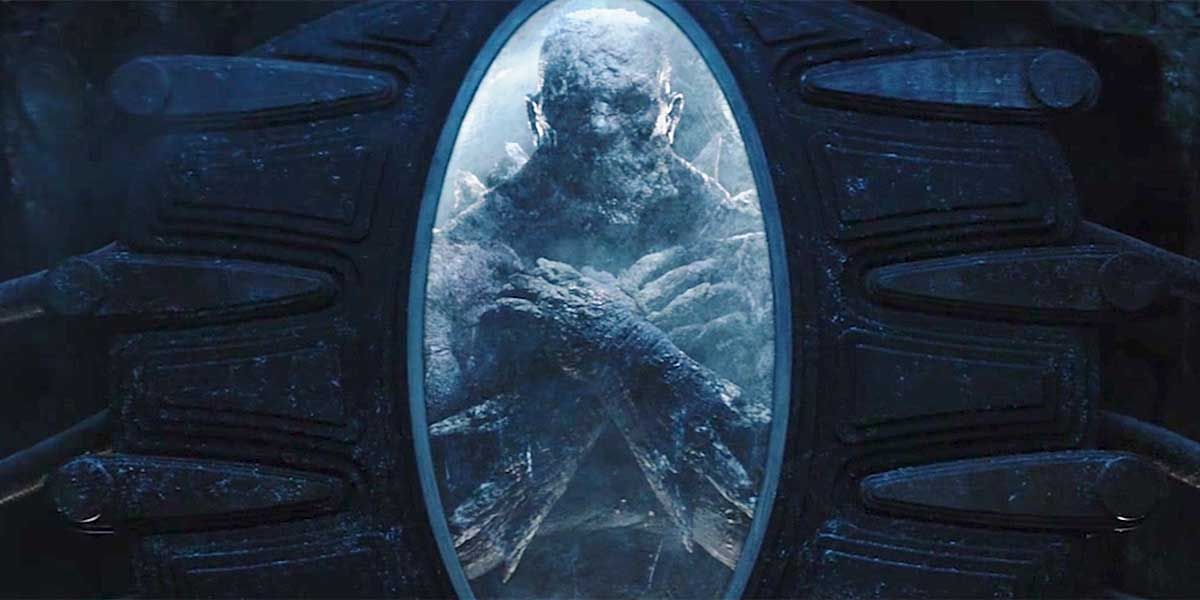WARNING: The following article contains major spoilers for Season 1 of Syfy's Krypton.
When Krypton was first announced, fans were skeptical about the series for a few reasons. For starters, the idea of a Superman-themed show set outside of the DC Extended Universe continuity which wouldn't impact on Henry Cavill's Kal-El felt a bit unnecessary. This feeling was heightened by the fact that early promos indicated it would be yet another dark, gritty story in an alternate DC reality.
And then there's the fact that the entire series' premise is based on an untold adventure of Kal-El's grandfather, Seg-El, who would be trying to preserve Superman's existence in the future. Choosing an unknown hero from the past seemed a sure-fire way to limit the villains available, but as details emerged, it was revealed that along with the House of Zod, Brainiac and Doomsday would be part of the show's narrative. And yet, as popular as these characters are, an air of apprehension remained. After all, fans still had bad memories of DC's villains already being mishandled in the DCEU.
RELATED: Krypton’s General Zod Finally Gets His Superman II Moment
Yes, the Arrowverse has had a fair amount of success with its villains, but remember: Krypton is not part of the Arrowverse. And yet, Syfy's new show has easily outperformed its CW brethren when it comes to intriguing bad guys. More importantly, it has so far trumped what Warner Bros. has done on the big screen, to the point where it's basically showing the studio how it should craft DC's most notorious miscreants.
Apart from Michael Shannon's General Dru-Zod in Man of Steel, the DCEU has lacked truly formidable nemeses. Shannon's Zod was intimidating, intense and merciless, which is why Superman controversially killed him. What made him resonate was that fans could relate to his mission to restore his planet -- this sense of empathy is what connects us to all Krypton's villains.
Page 2: [valnet-url-page page=2 paginated=0 text='Why%20We%20Kneel%20Before%20Zod%20%28And%20th%20Rest%20of%20Krypton%27s%20Villains%29']
Colin Salmon's take on Dru-Zod is just as loyal to his people as Michael Shannon's, but more calculating; he'll do whatever it takes to save his people from Brainiac. Seg's intention is to allow millions to die so Kal-El eventually lives, but Zod wants to do the opposite. He'll protect Krypton, even if it means ending the El bloodline and preventing Superman from ever being born.
The same goes for Zod's militant grandmother Jayna, and mother Lyta (who happens to be Seg's lover). They're left to make questionable yet sympathetic choices to save the ones they love. Thus, we find ourselves slightly rooting for them at some point because of how fully they've been developed, as well as their flawed, yet 'human' decisions.
RELATED: Krypton Showrunner Talks Taking on Brainiac in Season Finale
This counters what the DCEU has done. In Batman vs. Superman, the eccentric Lex Luthor was barely fleshed out, and no emotional connection was established for us to really care about the outcome of Doomsday fighting Superman. And then we have the bungled CGI messes which are all style and no substance, like Suicide Squad's Enchantress and Incubus; Wonder Woman's Ares; and Justice League's Steppenwolf and his Parademons.
Krypton, on the other hand, provides a perfect template on how the DCEU could have gotten its villains right. It's as much about style as it is substance, as is evident in the amazing design of Brainiac. The Collector of Worlds doesn't just look scary -- his personality is equally frightening. He haunts Season One a la Jaws, only to physically emerge in the last couple episodes. In other words, Krypton shows patience, preferring to leave major villains ominously looming for most of the season, before making glorious entrances.
This formula works for Krypton's version of Doomsday, too, who looks comic-faithful and quite spectacular. Shockingly, he's a huge-one up on the Lord of the Rings-type troll from BvS. He's also teased throughout the season, only to be unleashed in the final shot of the finale.
Krypton succeeds because it builds up the mystique and reverence of these monsters through slow burns -- something Marvel Studios also succeeded with in its depiction of Thanos.
The DCEU, though, just throws everything at the wall, hoping, praying something sticks. Even its politically-charged villain in Viola Davis' Amanda Waller didn't hit as expected, as her machinations were too convoluted, and her personal goals too unclear. Krypton, however, succeeds with its political villains, such as the Voice of Rao, the insurgent Black Zero and the 'Littlefinger' of the show, Daron-Vex. Their actions make the stakes similar to what we experience in the real world, riffing off of society's caste system and poverty in order to manipulate the masses.
RELATED: Where Is Adam Strange in Krypton’s Season 1 Finale?
Ultimately, what makes Krypton's villains stand out so much is how well balanced they are, especially when looked at against everything else going on in the show. They're used to help subvert the DC Comics lore, expand the breadth of the universe; help reshape Superman's history with Zod himself; push the concept of time-travel via Adam Strange; while also inspiring a few crucial easter eggs. With all this occurring, when you add to the mix such a packed cast of problem-makers, it's astounding how the show still gets them right, and achieves what the DCEU has yet to.




